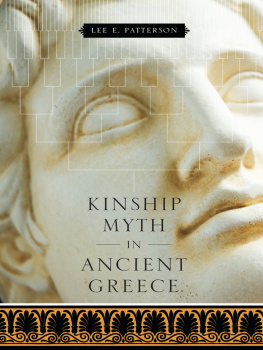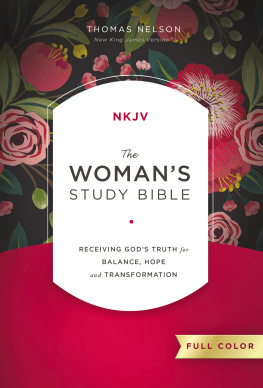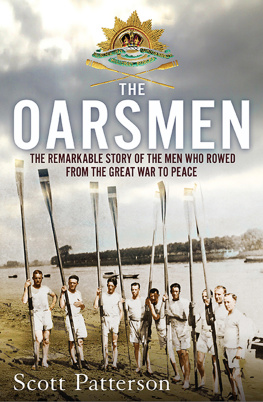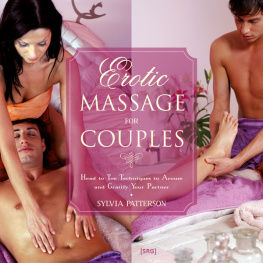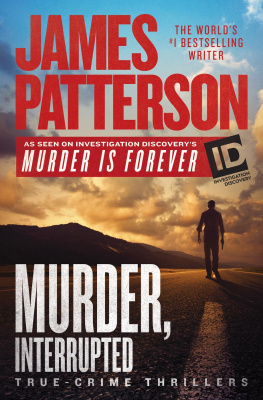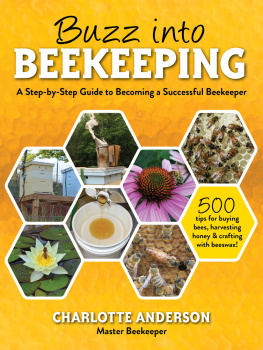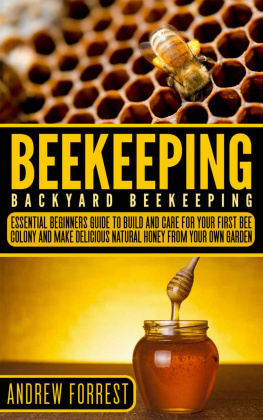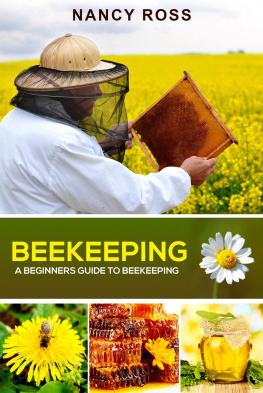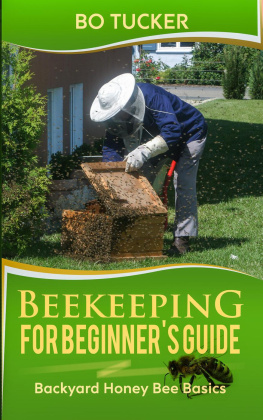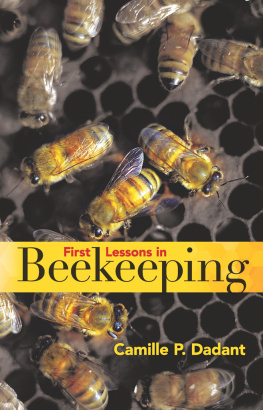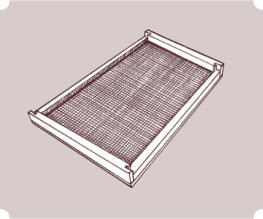BEEKEEPING
A PRACTICAL GUIDE
ONLINE GALLERY
To view more beekeeping photos, as well as larger versions of the photos already included in this book, scan the QR code shown on the front cover with your mobile or tablet or simply enter fug.io/bees into your web browser.
ABOUT THE AUTHOR
Roger Patterson started keeping bees in 1963 as a 15-year-old after the hard winter of 1962/3. He became a committee member of his local Beekeepers Association (BKA) at the age of 17, chairman at 23 and county BKA chairman at 25. At one stage he kept 130 colonies.
He is a practical beekeeper, concentrating on the basics and keeping things simple. He manages the local BKA apiary where there are usually a large number of colonies for instruction. He has been a demonstrator for well over 35 years, lectures widely and believes beekeeping should be fun. He is a British Beekeepers Association (BBKA) Trustee, Bee Diseases Insurance (BDI) Vice President and BIBBA (Bee Improvement and Bee Breeders Association) committee member.
In 2011 Roger took over the administration of Dave Cushmans website www.dave-cushman.net. This is considered by many to be one of the most comprehensive and authoritative beekeeping websites.

Constable & Robinson Ltd
5556 Russell Square
London
WC1B 4HP
www.constablerobinson.com
First published by Right Way, an imprint of
Constable & Robinson, 2012
Copyright Roger Patterson 2012
The right of Roger Patterson to be identified as the author of this work has been asserted by him in accordance with the Copyright, Designs & Patents Act 1988.
All rights reserved. This book is sold subject to the condition that it shall not, by way of trade or otherwise, be lent, re-sold, hired out or otherwise circulated in any form of binding or cover other than that in which it is published and without a similar condition including this condition being imposed on the subsequent purchaser.
A copy of the British Library Cataloguing in Publication Data is available from the British Library
ISBN: 978-0-7160-2285-5
eISBN: 978-0-7160-2286-2
Printed and bound in the EU
1 3 5 7 9 10 8 6 4 2
ILLUSTRATIONS
by David Woodroffe
COLOUR PLATES
Photographs taken by the author, except for Plate 5, courtesy of Neville Childs, and Plate 7, courtesy of John Glover.
DEDICATION
I dedicate this book to the late George Wakeford BEM 19001985. He was born and brought up on a farm in West Sussex and stayed very close to the land all his life. Although he had minimal education he was incredibly knowledgeable about nature and farming. As with all practical people he had great stock sense that he applied to all animals including bees. Although he had never read a bee book in his life and didnt know much about the technical side of beekeeping he was the best handler of bees I have ever seen and by some considerable distance. He never wore a veil or gloves, yet could handle the most vicious colony in a calm and methodical way without getting badly stung.
He was a very quiet man and not a good teacher, but I learnt a huge amount simply by watching him. Many of my methods were formed in this way and Im pleased I have been able to keep refining them and pass them on to others.
He was so well respected in West Sussex beekeeping he was awarded the British Empire Medal in 1981.
I was incredibly lucky in knowing George Wakeford well and I will always be grateful for the opportunity to learn so much from him.
ACKNOWLEDGEMENTS
I would like to thank Sue Cooper and Brian P. Dennis for reading the original draft. They are both beekeepers and although they made some useful suggestions about the beekeeping content they concentrated mainly on my Sussex English and punctuation (whatever that is) in an effort to help the reader understand what they thought I was trying to say. They have done a good job because even I can understand it now!
I would also like to thank Judith Mitchell, my editor, for her patience and almost instant response to emails. I found her comments invaluable in seeing the content from a non-beekeepers point of view.
INTRODUCTION
This guide is written for those of you considering taking up beekeeping, or about to start out in the hobby or with just a little experience with bees. Its aim is to encourage you and help you to understand how to care for your bees successfully. Ultimately, I hope your experience will lead you to agree with my long-term view that beekeeping is fun!
I have been keeping bees since 1963 and I had 130 colonies for several years. Apart from my first couple of years of beekeeping I have always tried to improve my bees by rearing my own queens from local colonies and I encourage others to do so, rather than use imported ones. I have been teaching since the early 1970s, most of which has been at the teaching apiary of my local beekeeping association (BKA), the Wisborough Green Division of the West Sussex Beekeepers Association.
I also lecture and demonstrate widely on practical beekeeping, so meet a lot of beekeepers both new and old and often come across some ideas that are real gems that people have used for years. I always look to see if a new idea will suit the way I work; if it doesnt, I either discard it or modify it. We never stop learning.
Most of the information I give is based on experience: firstly, I have actually done it in my own colonies; secondly, teaching has helped me to understand what beginners need in their formative years. In beekeeping you will never be short of advice either written or verbal, but you need to be aware that some of it is not based on experience, but what has been gleaned or cobbled together from other sources, often by inexperienced beekeepers.
Many people, even beekeepers, try to humanise bees and in my opinion that is wrong. A colony is a cohesive unit and unable to think in the same way that we do. We know they are largely controlled by pheromones, but we probably only know a fraction of what goes on inside a colony. There is a lot still to find out.
I was brought up on a farm, am an engineer by trade and from an early age I have been practical and capable of lateral thinking, assets I have found useful in my beekeeping. I am largely self-taught and by nature tend to keep things simple; that way I can usually understand why I have a problem and find a way out of it. In my teaching I try to impress upon beginners there are two very important things you must learn in order to become a good beekeeper: good handling techniques and learning what I call the basics. By basics I mean factual things that very often many with several years experience dont know. These include how to:
Identify brood in all stages, pollen and honey stores. |
Learn the life cycles of the queen, drone and worker. |
Recognise good healthy bees and brood. |
Identify the brood diseases American Foul Brood (AFB), European Foul Brood (EFB) and Chalk Brood and know how to deal with them. |
Learn the life cycle and treatments for Varroa destructor. |
Understand how varroa vectors viruses. |
Understand the swarming process. |
Dont worry about these at the moment, as you should pick up enough information if you read on.
In a couple of places in this book I have expressed some strong views that may be seen as controversial. I am passionate about bees and beekeeping and have seen what damage has been done to them, sometimes in the name of kindness. Those who know me well will tell you I have endless time for those who work hard to become good beekeepers and I get frustrated and angry when I see people given bad information and advice, some of which has crept into modern beekeeping teaching. I am happy for methods other than mine to be shown provided that they suit the system that is being advocated. However, often factual information is incorrect. Bees dont always respond in the way you expect, and two colonies on the same site at the same time that are treated the same will often react differently and things are not always as straightforward as they seem. You only learn these things by experience and you cant always get answers from a book or a phone call. Some may well be offended by this paragraph and I make absolutely no apologies. I consider my standards are high and I want all beekeepers to have access to good sound teaching, so they can look after their bees well and enjoy their beekeeping.


